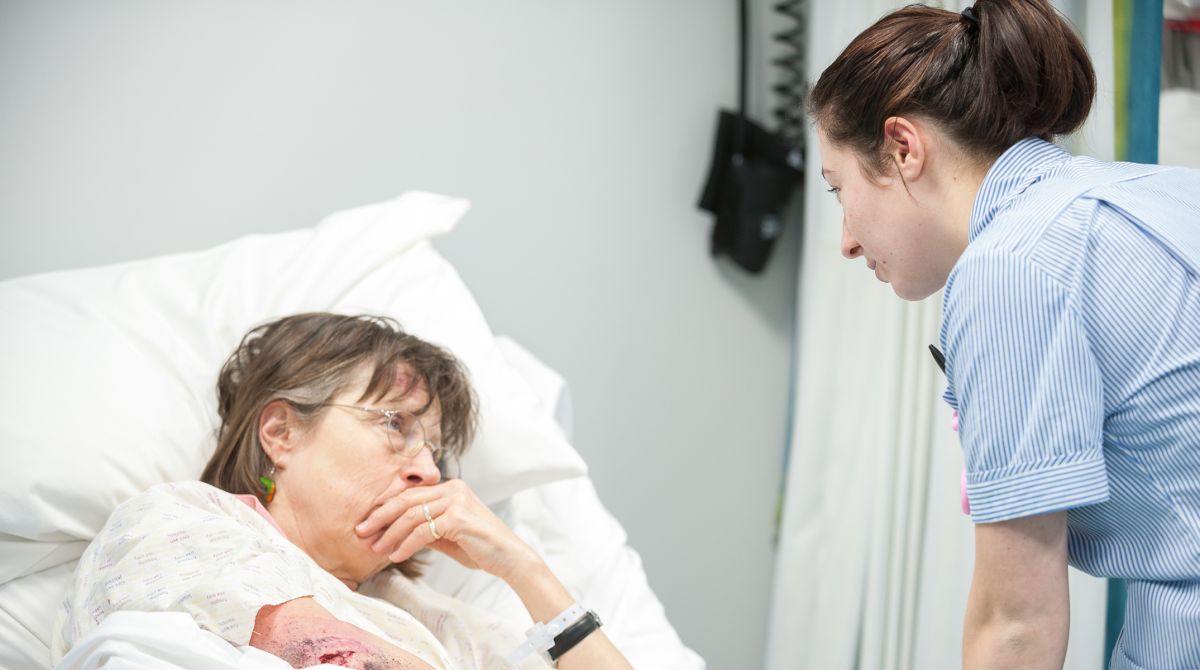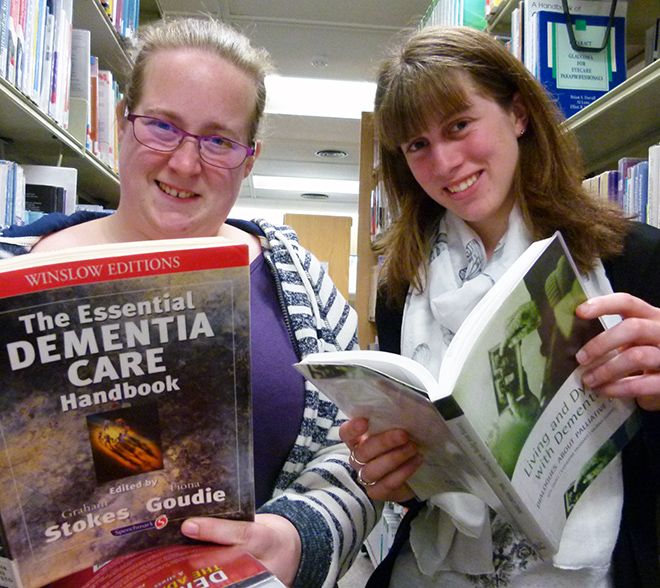Embedding dementia care training in degree studies key priority for healthcare experts from Kingston University and St George's, University of London
Posted Friday 1 July 2016

With more than 850,000 people living with dementia in the United Kingdom – and that figure set to rise to more than one million within the next 10 years – Kingston University and St George's, University of London have made a commitment to provide all nursing, health and social care students with specialist dementia care training as part of their studies.
The Faculty of Health, Social Care and Education, run jointly by Kingston and St George's, wants to ensure that all its student nurses are equipped with the appropriate skills and compassion to prepare them for working with dementia patients in hospitals, care homes and the wider community.
As part of this commitment the Faculty partnered with the Alzheimer's Society to run a series of Dementia Friends workshops for student nurses and other healthcare trainees. These sessions are part of a national initiative by the society to help change people's perception of dementia and give them the tools to better communicate with people with the condition.
The workshops are run as part of the Faculty of Health, Social Care and Education's Communication and Respect for people with Dementia Student Learning programme (CARDS) which was developed to give students experience of a voluntary placement in a care home to have the opportunity to communicate with older people with dementia.
 Student nurses Nicola Chuter and Kathryn Hart both found the specialist dementia training hugely beneficialFirst-year nursing student Nicola Chuter attended one of the recent training sessions. She has seen first-hand the difficulties of communicating with someone suffering from dementia. "My grandmother had dementia and I think everyone in the room had some experience of dealing with the illness – either through close family and friends or at work. Discussions in the group confirmed many of us had similar personal experiences and the workshop gave us tools and strategies to address the kinds of challenges we were all familiar with," she said.
Student nurses Nicola Chuter and Kathryn Hart both found the specialist dementia training hugely beneficialFirst-year nursing student Nicola Chuter attended one of the recent training sessions. She has seen first-hand the difficulties of communicating with someone suffering from dementia. "My grandmother had dementia and I think everyone in the room had some experience of dealing with the illness – either through close family and friends or at work. Discussions in the group confirmed many of us had similar personal experiences and the workshop gave us tools and strategies to address the kinds of challenges we were all familiar with," she said.
More than 525,000 people with dementia in the UK are living at home, according to research by the Alzheimer's Society – a sizeable proportion of the overall number of people with the condition. With around 700,000 informal carers looking after their loved ones, getting appropriate support and care within a home setting is becoming increasingly vital.
Nursing student Kathryn Hart from the Faculty of Health, Social Care and Education was keen to get involved in the programme as she plans to work in community or district nursing after graduating. "The training is particularly relevant to me as many dementia patients want to stay in their own homes because it's what they recognise and helps to keep them grounded," Kathryn explained. "Through the workshop I learned that there are lots of different ways to communicate with dementia patients and I think this will be hugely beneficial to me in my work."
Denise Forte, who runs CARDS, said the goal was to provide dementia care training to all healthcare students in the Faculty of Heath, Social Care and Education. "We want to give the students an opportunity to experience what it's like to communicate with someone with dementia so that, by the time they get into professional practice, they have a better understanding of how to work effectively with someone with the illness and to challenge some of those stereotypes."
Alongside their work with the Alzheimer's Society, the Faculty has also just secured a grant from the Education Enhancement Fund to finance a powerful play about the impact dementia can have on families. Called Grandma Remember Me, the piece will be performed by theatre group AZ2B at a local venue in the Kingston area later in the year.
Figures from the Alzheimer's Research UK and the Alzheimer's Society.
Contact us
General enquiries:
Journalists only:
- Communications team
Tel: +44 (0)20 8417 3034
Email us



